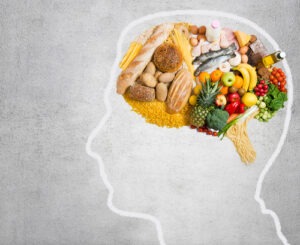Career Advice for Job Seekers
Foods that Boost Brain Power
Both teens and parents do so much to prepare for college success ahead of time. Then when students finally get to college they spend so much time concentrating on doing well they might forget some easy tips and tricks to get ahead. One such idea is to make sure to maintain a healthy diet full of foods that boost brain power. Learning which foods help us think clearer and better in college will help maintain a healthy lifestyle and a quick thinking brain for life.
The good news is that there is a great selection of foods that will help increase that brain flow and activity. Here is a list of 15 foods that boost brain power:
1. Fatty Fish: Fish that are rich in omega-3 fatty acids are known for boosting brain activity. The fish that contain healthy amounts of this are salmon, albacore tuna, mackerel, and sardines. The recommended amount of servings per week is 3 to improve mental clarity.
2. Cruciferous Vegetables: There is a long list of cruciferous vegetables which include leafy greens. Some of the more popular ones are cabbage, broccoli, cauliflower, Brussels sprouts, cabbage collard greens, bok choy, turnip, radish, mustard seeds, kale, and wasabi. They all help your brain because they are filled with vitamin C and carotenoids, which are antioxidants that protect your brain from free radicals.
3. Avocados: A healthy fatty food that is delicious and packed with Vitamin E. In order to receive the antioxidant benefits of Vitamin E, it needs to be from foods, not supplements.
4. Walnuts: These nuts pack a punch with Omega-3, vitamin E, and other antioxidants, making them one of the best healthy, all natural snacks busy college kids on the go can munch on. Vitamin E helps prevent poor memory.
5. Pumpkin Seeds: A serving of pumpkin seeds has your recommended daily allowance of zinc, which helps your thinking skills.
6. Berries: All berries are rich in antioxidants. Research on antioxidants shows that they may protect the brain. Blueberries might even reverse age-related declines in cognitive function. Therefore, making a habit of keeping berries part of your diet will help you in college and beyond.
7. Eggs: Eating eggs can aid brain functioning because it has choline, which is an essential nutrient that maintains the structure of cell membranes.
8. Pomegranates: The seeds of this winter fruit are edible and make a nice addition to salads or just a crunchy snack. Pomegranate juice is also a popular choice to consume the resveratrol that studies have been shown will protect the brain.
9. Beans: Beans are a popular choice among college students who like burritos. The beans have a lot of vitamin B and glucose that help give your brain energy.
10. Dark Chocolate: Chocolate with at least 70% cocoa contains flavonoids. Flavonoids are also in apples, red and purple grapes, red wine, onions, tea, and beer and are a class of antioxidants that some research indicates it to promote brain health. Since chocolate should be consumed in moderation, add in some of the other flavonoid-rich foods to maintain a healthy balance while still getting the brain boosting power.
11. Green Tea: Has been said to help with a positive mood. Drinking tea before class or in preparation for an important test can help ensure a positive outcome.
12. Curry: Curry is a spice that is popular in Thai and Indian cuisines. Some people not familiar with it might think that it is spicy or strong, but it does not always have to be prepared that way. It can be very tasty and flavorful. When you factor in the studies that have indicated that curry’s active ingredient, curcumin can remove the proteins in the brain that cause Alzheimers, you should consider finding some curry dishes that you like.
13. Alcohol: Studies have shown that drinking in moderation (between one and six drinks per week) may protect the heart and the brain because it prevents blockages in blood vessels. Study participants were 54% less likely to develop dementia that those who did not drink at all or drank too much.
14. Coffee: Of course, this is another one of those foods that too much can cause problems. However small amounts of caffeine have been shown in studies to approve attention span, reaction time, and other brain skills. The trick is learning how to keep moderation.
15. Water: It kind of makes sense that water is on the list because your brain is no exception to all of the other organs and parts of your body that need water. An Ohio study determined that well hydrated students did much better on tests than those who did not drink enough.
Bio: Josh Ferrell is blogger and Brand Manager for DiplomaDisplay.com. He enjoys sharing tips for college living.
New Job Postings
Advanced Search